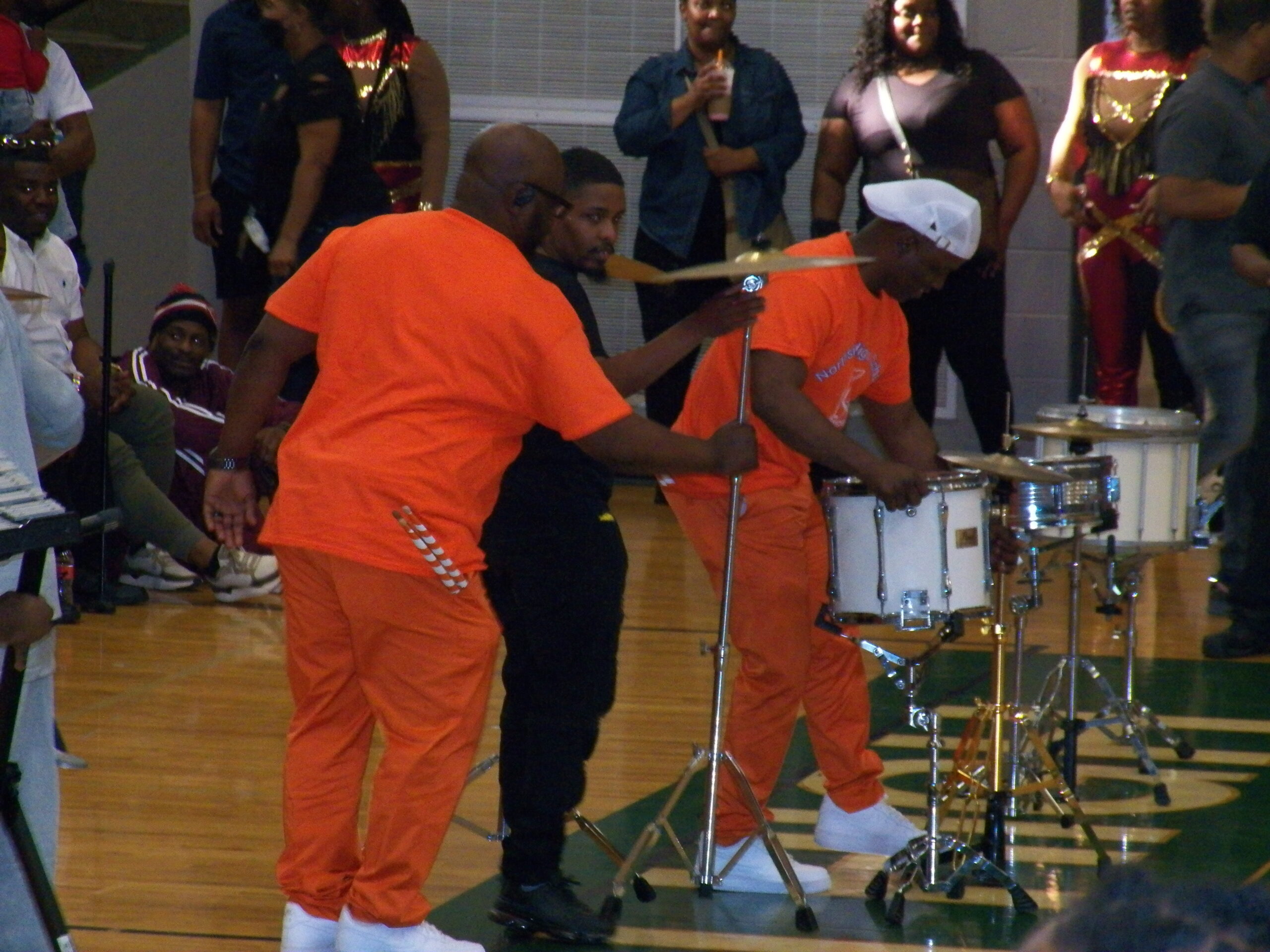























Black majorettes and majorette drummers were a unique part of the culture of Memphis’ Black neighborhoods from the late 1960s to the early 1990s. Most of the schools and community centers had squads of majorettes who did routines to sequences of rhythms and grooves played by drummers. Early on, these were probably ordinary marching drumlines, but during the 1970s, majorette drummers added woodblocks, roto-toms and high-hat cymbals to create effects similar to those of a set drummer. A glockenspiel player could play certain melodies from popular songs during slower interludes within the sequence, but only percussion instruments were permitted. The majorettes and drummers competed in events called jamborees, which usually featured a DJ from either K-97 or Magic 101 radio stations, and the gymnasiums where they were held were filled to capacity and occasionally over capacity.
When I first encountered the majorette and drummer culture in the late 1980s, I could never have imagined that it would disappear. It had old and deep roots in the city, and seemed as popular than ever. Several factors conspired to bring about a decline in the majorette and drummer phenomenon. Band directors disliked it, as majorette drummers were not always part of the band program, and directors felt that damage to drums and cymbals was resulting from improper playing. After some highly-publicized incidents of violence occurred outside of gyms where jamborees were taking place, Dr. Willie Herenton, who was then superintendent of schools, suggested that the events should be curbed or done away with altogether. And the drummers and majorettes also disappeared from community centers due to budget cuts. Several prominent youth drum coaches in Memphis died. And the majorette squads began to prefer recorded music played by DJs. All of this has combined to make majorette drumming an endangered African-American art form.
Although Memphis still has majorette jamborees today, there are usually not any drummers at them. An exception is the Old-School Majorette and Drummer Jamboree, which first appeared in 2012. This event, which has only been held sporadically since then is intended to give former majorettes and drummers who are now grown opportunity to get back out and perform as they did when they were young, and as such, it continues the old tradition that I knew in my youth.
This year’s event was held at the White Station High School gymnasium, but it was evident that a bigger crowd showed up than the organizers were intending. The line of people waiting to get in stretched for more than a block down Perkins Road in front of the high school and all the way down to a nearby church. Although there was some fear that people with tickets might not get in due to the building filling to capacity, everyone made it in.
Those who came witnessed performances by the drummers and majorettes from Douglass, Kingsbury and Northside High Schools, as well as the majorettes from Hamilton, who performed to a recording. There was also an exhibition by the Wolfpack. a well-known Memphis alumni drumline which has played on Beale Street in the past and for various other community events. This year, the Northside drummers and majorettes won the first place trophy, and the Wolfpack gave an outdoor performance in the parking lot as people were leaving.

